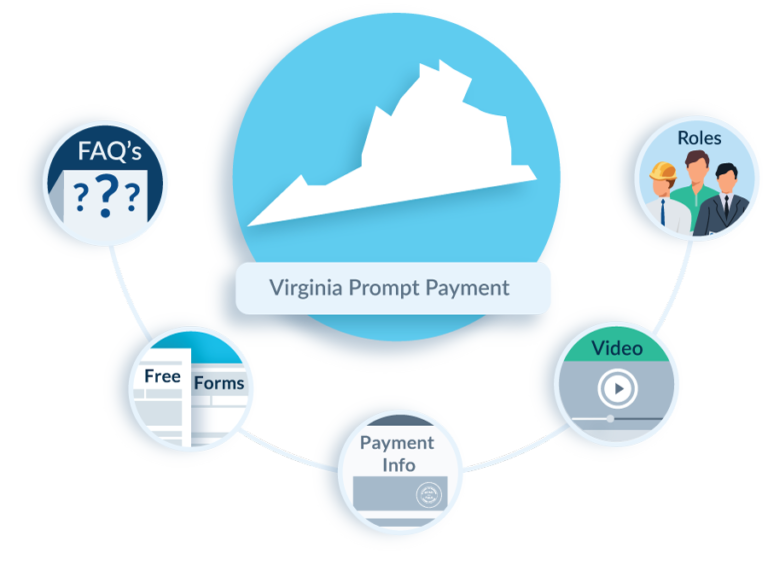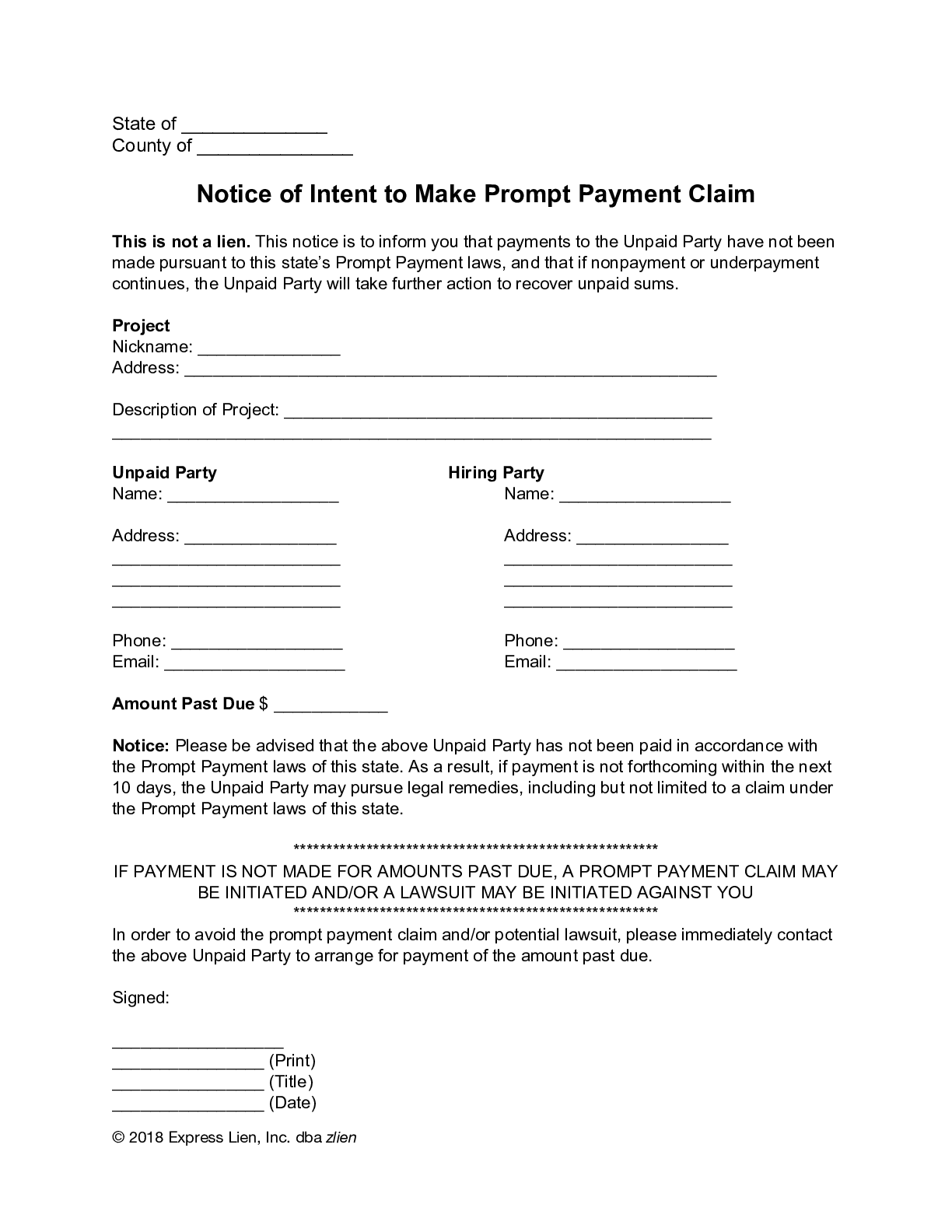Virginia Prompt Payment Requirements
- Private Jobs
- Public Jobs
- Top Links
Prime Contractors
Not specified in state statutes
Subcontractors
Not specified in state statutes
Suppliers
Not specified in state statutes
Interest & Fees
Not specified in state statutes
Prime Contractors
For Prime (General) Contractors, for state projects, payment due within the later of 30 days of invoice or receipt of services (can be modified by contract); for local projects, payment due within the later of 45 days from invoice or receipt of services (can be modified by contract).
Subcontractors
For Subcontractors, payment due within 7 days of receipt of payment from above.
Suppliers
For Suppliers, payment due within 7 days of receipt of payment from above.
Interest & Fees
Interest at prime rate for GCs on state projects; interest at 1% month for all other late payments.
Prompt payment laws are a set of rules that regulate the acceptable amount of time in which payments must be made to contractors and subs. This is to ensure that everyone on a construction project is paid in a timely fashion. These statutes provide a framework for the timing of payments to ensure cash flow and working capital.
Projects Covered by Prompt Payment in Virginia
The Virginia Prompt Payment laws set payment deadlines and penalties for public construction projects, these statutes can be found in Va. Code §§ 2.2-4347 – 2.2-4356. There are no provisions covering private projects. The timing for payment differs depending on whether the project is commissioned by a state or a local government entity.
Deadlines for Payment on Public Projects
Payments made from the public entity to the prime contractor will be determined by the contract terms. However, if the contract is silent, then the prompt pay deadlines are enforced. On state projects, the prime contractor must be paid 30 days after the public agency receives a proper invoice or 30 days after the receipt of labor or materials on the project; whichever is later.
For local government projects, payment is due the later of 45 days after receiving an invoice, or 45 days after the delivery of labor or materials. If the invoice received by the public entity is defective, notice must be given to the prime contractor within 15 days for state projects, and 20 days for local projects.
On either type of project, once the prime contractor is paid, the funds must be passed along to any subs or suppliers within 7 days of receipt; and so on down the payment chain.
Penalties for Late Payment on Public Projects
Unlike other prompt payment provisions, Virginia doesn’t provide any specific reasons that payment can be withheld. Although they do state that interest won’t accrue for defective invoices, or disagreements regarding the quality, quantity, or time of performance or delivery.
State agency late payment is subject to an interest that begins to accrue once the payment starting on the 8th day past due. The interest rate is for prime contractors on state projects is either according to the contract terms or the current prime rate published in the Wall Street Journal. As for local entities, payments to primes will begin to accrue interest once payment has become late. This will accrue at the rate established in the contract, but can’t exceed 1% per month.
Payments to contractors, subs, and suppliers are all subject to an interest rate of 1% per month, starting on the 8th day after the paying party received project funds.


